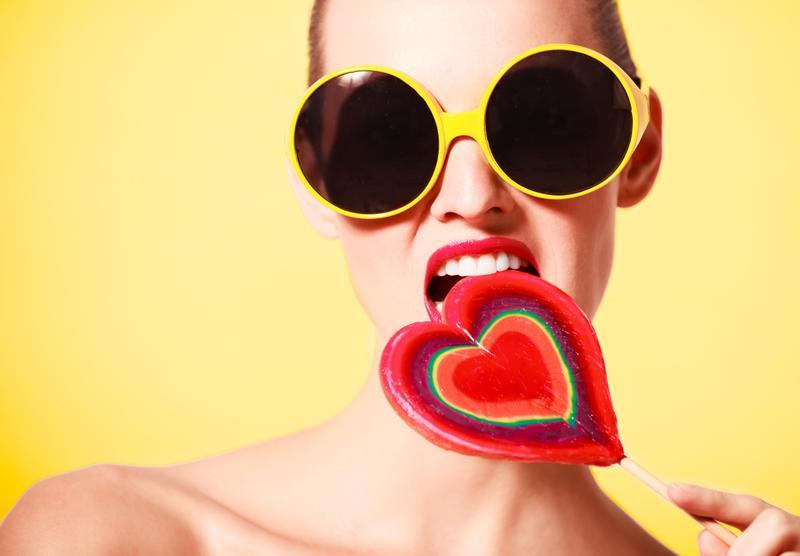The Old Lady and The Sweets
The Old Lady and The Sweets
A few years ago, an older lady (let’s call her ‘Mary’) came to me for nutritional help. Mary was very cross with herself and showed me her handbag that was literally overflowing with packets of sweets and chocolates: “I used to carry bottles of vodka and now this!”
She had gone from alcohol addiction to hooked on sugar, which caused her health to rapidly decline.
Have you been experiencing this?
I work with a lot of people with mild to severe alcohol addictions that often turn to sugar addiction when they become sober.
The reason being that it’s not just the alcohol that people are addicted to in the drink, it’s also the sugar.
And if you ate a high sugar or carbohydrate diet in your early years, you’re more likely to then suffer from other addictions, especially alcohol.
So you’d be right in thinking ‘surely sugar is better than alcohol??” – Except that for an ‘addict’, sugar overeating is a trigger to low blood sugar, which will make you more likely to go back to drinking (and even other addictions).
And sugar itself may also lead to many health problems – some, like diabetes and obesity, often life-threatening.
Is sugar really that bad?
Not all sugar! Your brain and most systems in your body need some sugar to function. This sugar will turn to glucose in the blood, keeping your body balanced. But when the glucose balance gets disturbed, being too high (hyperglycaemia) or too low (hypoglycaemia) is when trouble happens. You may get (among many other symptoms): fatigue, irritability, headaches, memory loss, panic attacks and depression.
Where it all goes wrong
Every time you consume sugar/carbs/alcohol, your pancreas produces insulin to lower the levels of glucose in the blood as high blood sugar (hyperglycaemia) will create disease (ie diabetes).
The more you consume these, the more insulin increases. After years of overeating sugar/drinking alcohol, even the slightest rise in blood sugar will trigger an over-production of insulin, which will cause your blood sugar to drop far too low, causing hypoglycaemia, with its associated symptoms.
The reflex when you feel tired/unwell as a result of hypo, is to consume more sugar/alcohol, which will then raise insulin and lower blood sugar again, causing fatigue, irritability, etc. You are officially on the sugar roller-coaster.
How to get off the roller-coaster
Here are some simple essential principles to help you balance your blood sugar and avoid the sugar/alcohol cravings:
- Eat no sugar (refined, unrefined, brown white – it’s all sugar). No chocolates, cakes, pastries, white bread, white pasta, rice, soft drinks, alcohol etc.
- Eat some protein within an hour of waking (eggs, nuts and seeds, protein powders, fish, etc)
- Eat little and often – have 5 to 6 little meals/snacks a day. Every 3 hours at most
- Have some (varied) protein at each little meal/snack. Do not eat animal protein all day (once a day is more than enough). Include nuts, seeds, nut butters, tofu, eggs, pulses, houmous, quinoa, tempeh etc
- Eat some good fats with your protein to help absorb and digest it.
- Sugar ‘allowed’: starchy vegetables (no white potatoes), fruit (not dried), smoothies with whole fruit, wholegrains.
Following these ‘rules’, Mary’s blood sugar quickly stabilised and she lost all sugar/alcohol cravings within a few weeks. She continues to eat this way as she knows she is ‘susceptible’ to relapse.
So if you tend to often find yourself on the roller-coaster, if you battle with cravings and know that they may lead you to go back to drinking, these ‘rules’ should become your go-to. Try for at least 4 weeks and note how you feel.
You may even find that your brain fog lifts, your energy rises and some unwanted weight drops without reducing calories or going on a diet.
References:
‘Low Blood Sugar’, Martin L. Budd
“The diagnosis and treatment of hyperinsulinism’, Ann.Intern.Med., Seale Harris
‘Metabolism’, Vol.4, M. Fabrykant
“Hypoglycaemia – the classic healthcare handbook” Jeraldine Saunders and Dr Harvey M.Ross
Be the first to post a message!
